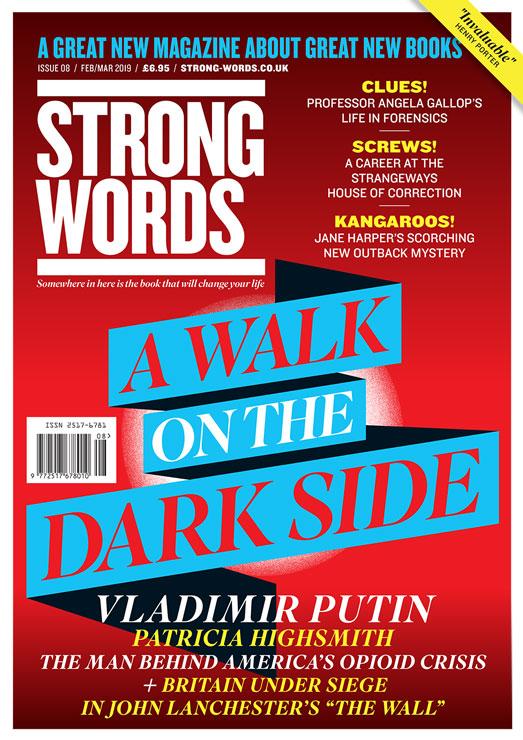30,000 words. Every six weeks. From one contributor.
 That’s the workflow behind Strong Words, an 80-page book magazine about books.
That’s the workflow behind Strong Words, an 80-page book magazine about books.
“Just over a year ago Ed Needham, former managing editor of Rolling Stone and editor of Maxim and FHM, launched a magazine to which he is the only contributor,” writes Kate Mossman in New Statesman America. “Strong Words is about books. It is 80 pages long, classy to look at and covers graphic novels alongside highbrow reads, with author interviews and features of a quizzical nature: ‘Fudges! A History of Embarrassing Literary Errors’; ‘Future Predictions That Missed The Mark’ (authors who got it wrong, unlike George Orwell). There was once a piece on how to be more like Donna Tartt. And another on bookshelves.”
It’s a massive undertaking, as Mossman learned in an interview with Needham.
“At the New Statesman, a freelance writer usually gets a deadline of two weeks for a book review,” Mossman writes by way of comparison. “Needham writes around 100 reviews for each issue, ranging between 150 words and 1,000.”
Okay, I’m impressed. This herculean task has him working seven days a week (but just days; he spends his evenings and nights enjoying life beyond his work), with the occasional Sunday off. He is committed to his craft in a way that echoes over every page, including his subscription page that reads “Never get your face stuck in the wrong book again.”
This man has a passion, and it shows. He’s also pragmatic in his approach to the current realities of the industry; the magazine exists on subscriber income, not ads.
“He points out that technology, while utterly destroying the market for magazines, has also made it possible to produce one with very few people,” Mossman explains. “You no longer have to sell as many copies to make a living.”
“The number one reason for the collapse of the magazine industry was the migration of ads from print to digital, so to envisage a plan that included ads was foolhardy,” he tells Mossman. “Of course, if someone wanted to advertise I would say, by all means!”
And in true indie style, he’s found the one place he belongs, turning out book reviews that mean something and curating them in a publication that has real gravitas among those who know. In the meantime, the book world benefits from his near-obsession to his craft.
In many ways, he’s like any other start-up entrepreneur, regardless of the field. It’s just somehow more romantic to picture someone working on a magazine like this purely for the love the work itself.
